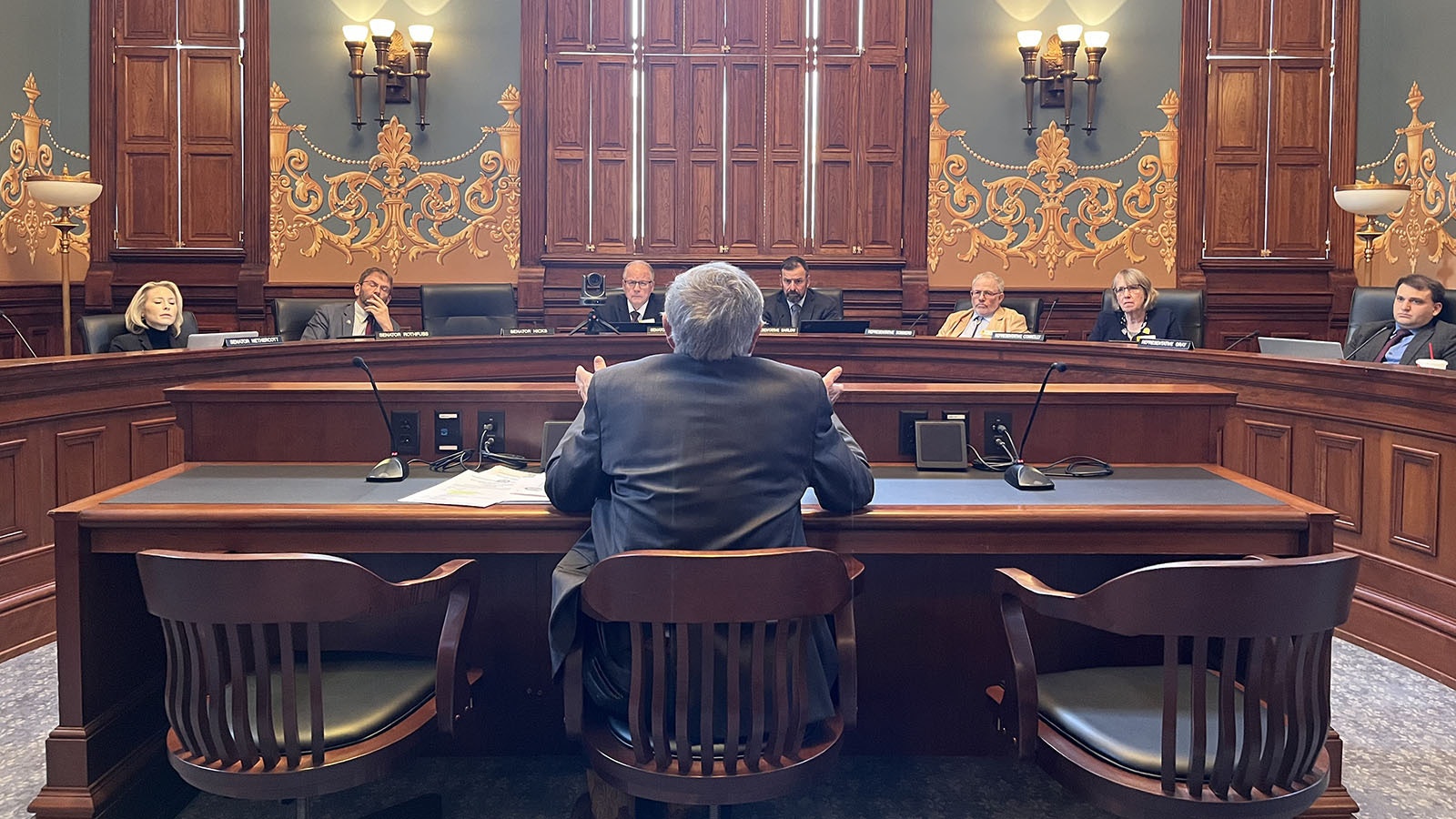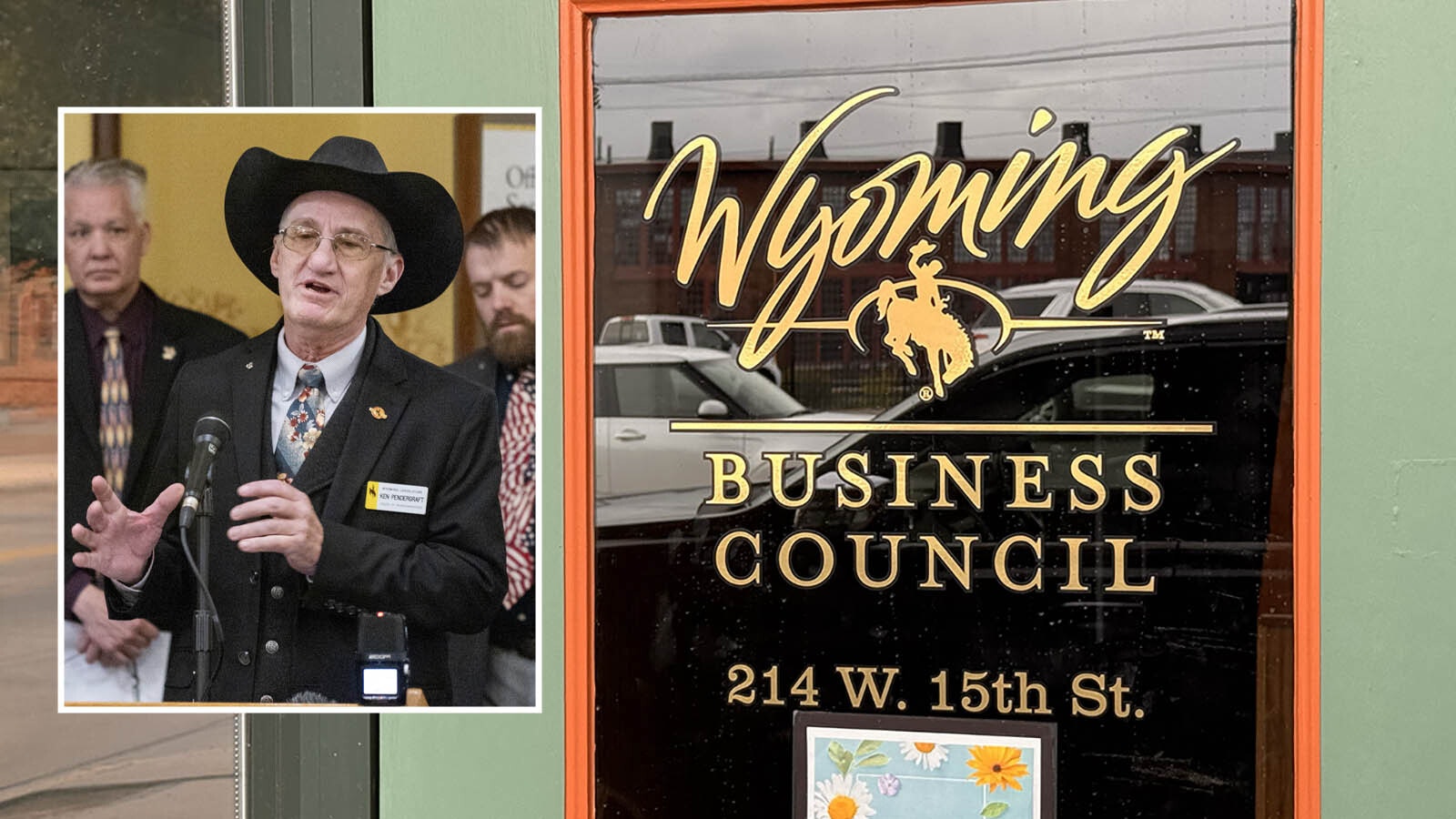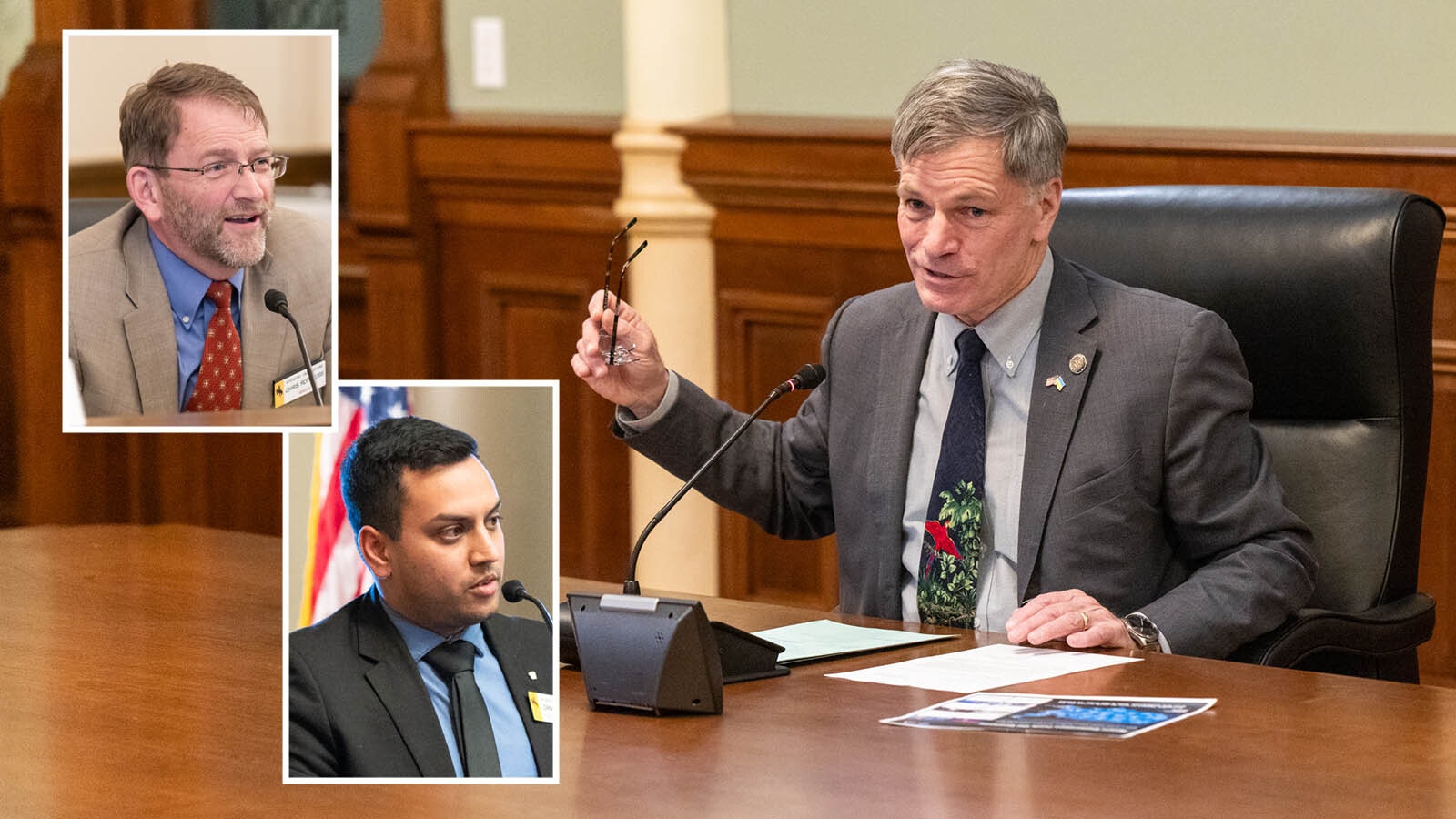By Leo Wolfson, State Politics Reporter
Leo@Cowboystatedaily.com
A request to subpoena Wyoming Attorney General Bridget Hill to testify before a state legislative has been rejected.
The Wyoming Legislature’s Management Council voted 6-2 on Thursday afternoon against funding an Agriculture Committee subpoena and an additional meeting that would have been added to the committee’s schedule to allow Hill to testify.
The inspiration for the request came from the Agriculture Committee to analyze the way Hill had handled a particular state land leasing dispute originating in 2018. Hill was director of the Office of State Lands and Investments until 2019, when she began serving as attorney general after being chosen by Gov. Mark Gordon for the role.
Too Costly
For the majority of members voting against the request on Thursday, it was not a matter of whether or not Hill made a mistake during that leasing approval process, but rather whether paying to fund the nearly $12,000 cost of another meeting would impact future legislation.
“I don’t think we can fix this in one day,” said state Sen. Dan Dockstader, R-Afton, chair of the Management Council. “I just feel like it’s deeper than just one more day of decision-making.”
Sen. Chris Rothfuss, D-Laramie, took a similar non-positional stance on the land dispute, but a contrary one about the request, voting in support of the subpoena. Rothfuss said there is a precedent for the Management Council to accept requests by committees that want money for an extra meeting day.

Case In Hand
In 2018 under Hill’s watch, Wagonhound Land and Livestock Company LLC and John Leman submitted competing applications for a 10-year lease of a 146-acre parcel of state land in Douglas near their properties.
Wagonhound offered to lease the land for $1,360 a year while Leman offered $348.84 a year.
Wagonhound was awarded the lease by OSLI, a decision Leman appealed.
The Office of Administrative Hearings recommended reversing the decision, a recommendation opposed by OSLI and not accepted by the State Board of Land Commissioners.
By the time a final decision was made by the Land Commissioners in April 2020, Hill was advising the board as attorney general and did not recuse herself from giving advice to the panel about the Leman-Wagonhound appeal despite her involvement in it. She presented to the board on this matter in place of her successor, OSLI Director Jenifer Scoggin, at that meeting.
Most of the Management Council expressed empathy for the Lemans and their situation.
The Lemans have claimed Wagonhound was awarded its bid based on fraudulent statements and that it did not have an actual or necessary use for the land, which Wagonhound has disputed.

More Arguments
On Thursday, Gigi Leman provided additional information on the case, arguing that cattle were not being cared for on the Wagonhound leased parcel because they did not have access to water.
“This matters because range management matters,” she said. “And how this has been totally changed on the landscape out into the field isn’t smart for animals.”
Rep. John Eklund, R-Cheyenne, co-chair of the Agriculture Committee, said although the decision made in the Leman case was legal, that shouldn’t preclude his committee from learning about how Hill made her decision.
“As a rancher, I look at it and say it doesn’t seem fair,” Eklund said. “As an attorney, I look at it and say it probably looks legal enough. But I think we can do better than that as an Ag Committee and oversight of the State Lands and set rules and guidelines for them.”
Verbal Appeals
John and Gigi Leman testified before the Management Council on Thursday. Both stressed they don’t expect a reversal on their case, but want it used as an example for the Legislature moving forward.
“The reason why we’re here is because it’s our civic duty to see how it strings out,” Gigi Leman said. “It’s our civic duty to move it forward so others are not wronged. That’s why we have the legislative branch of the country to help here for the people.
“If we can’t have anyone to come to and have our voices heard and respected, why are we all here? That’s your job.”
John Leman also alluded to the questionable optics and alleged impropriety used in their case. The couple was not able to attend the April 2020 Land Commissioners meeting in-person as it was one of the first the state held during the beginning of the COVID-19 pandemic.
At that meeting, Gordon mistakenly addressed Hill as “Director Hill” in reference to her prior position, when she first started addressing the panel.
“So, you almost got the impression that the director and the attorney general are almost one in the same. That’s disturbing,” John Leman said.
‘Major Conflict Of Interest’
Gordon was a member of the Board of Land Commissioners when he was state treasurer. The attorney general advises both OSLI and the Land Commissioners on leasing matters, thereby giving Hill the responsibility to advise the agency she recently led, and in the Leman case, advise the Board of Land Commissioners on a case she was previously involved with in her former role.
“That creates a major conflict of interest,” John Leman said. “That kind of policy of having a former director assume that kind of role as an attorney general can basically justify her actions and advise the board on how to rule in a case such as this.”
An invitation the Ag Committee made to Hill to attend its meeting earlier this month was rejected.
“I think the precedent here is if an agency can just stonewall, it’s a bad precedent,” said Rep. Chuck Gray, R-Casper.
Gray argued for funding the meeting and described the Lemans as “patriots.” He said he has held multiple meetings about their case since 2021 and met with State Auditor Kristi Racines about it on one occasion.
“Something was wrong when a committee goes completely through the process and is not able to get their questions answered, a refusal of a state official to get their questions answered that they put forward,” Gray said. “This is totally within the agency oversight role that we have in the Legislature and it’s very important that we carry out that role.”
Upcoming Legislation
One of the biggest questions on the minds of the Management Council members was whether approving the meeting and allowing Hill to be questioned would significantly impact legislation.
Sen. Tara Nethercott, R-Cheyenne, was not convinced it would.
“Contrary to other opinions, at this day, the clock has run out,” Nethercott said. “But that doesn’t mean the inquiries stop because we vote no today and that was kind of my greatest concern over unrealistic expectations and what we’re being asked to do today.”
Eklund said there are a handful of drafted bills for the upcoming session that he felt could be impacted by Hill’s testimony. One of the most specific to the Leman case is 23LSO-0205, which clarifies the actual and necessary use an applicant must have to lease vacant state land.
“I think it could be tweaked here and there,” Eklund said. “I think the bills are ready to go as they are. I’m sure we could make some good changes, but the legislation isn’t dependent on this meeting.”
Other legislation regarding vacant land leases passed in the last session clarifying state laws on the matter.
Eklund said he has also heard rumors of possible legislation drafted that would make the attorney general an elected official in Wyoming.
An Example
The Ag Committee wants to use the Leman case as a way to study the processes used by state decision-makers when establishing state land agricultural and grazing leases and the mechanisms used for determining and addressing conflicts of interest.
Eklund said he wants to make sure OSLI is properly staffed and funded in the future so situations like the Leman case don’t happen again.
Multiple members voting against funding the meeting said the Leman case could still be used as a case example as an interim topic for the Ag Committee.
The Ag Committee will likely look vastly different in the next session as Eklund said there will only be two returning House members.
Precedent
Subpoenas are not uncommon on Capitol Hill in Washington, D.C., where agency heads and industry leaders are routinely compelled to testify before Congress.
But the last time any branch of the Wyoming Legislature submitted a subpoena was in 2013 during the investigation of former Superintendent of Public Instruction Cindy Hill. That subpoena, which Cindy Hill accepted, came from an investigative committee.
“I think officials need to be responsive so they can provide information that is being sought after,” said Rep. Albert Sommers, R-Pinedale, who voted against the request. “I don’t believe in the committee process being done by a committee necessarily unless that committee is investigating.”
Even if the council had accepted the request for a meeting and subpoena, Bridget Hill could have exercised other avenues to avoid testifying before the Ag Committee, such as submitting a motion to quash.
“Had she gone through that process, I don’t know how long that would have taken,” Eklund told Cowboy State Daily after the meeting. “And that would have really made a mess of things, because this is an issue that this committee needed to deal with.”
Eklund said he’s not concerned about her refusal setting a precedent for future officials who are asked to testify.
Nethercott expressed concern that granting the Ag Committee permission to subpoena the attorney general would do nothing to change the Leman case and allow the committee to posture against Hill’s no-show.
“I understand that frustration, but is it really about that piece of the refusal to appear and that’s not acceptable by the Legislature and we are a watchdog for everyone in the state?” she questioned Eklund.
Nethercott also expressed concern that approving the subpoena might set an expectation from the public that their problems can be resolved by targeting state agency heads.





